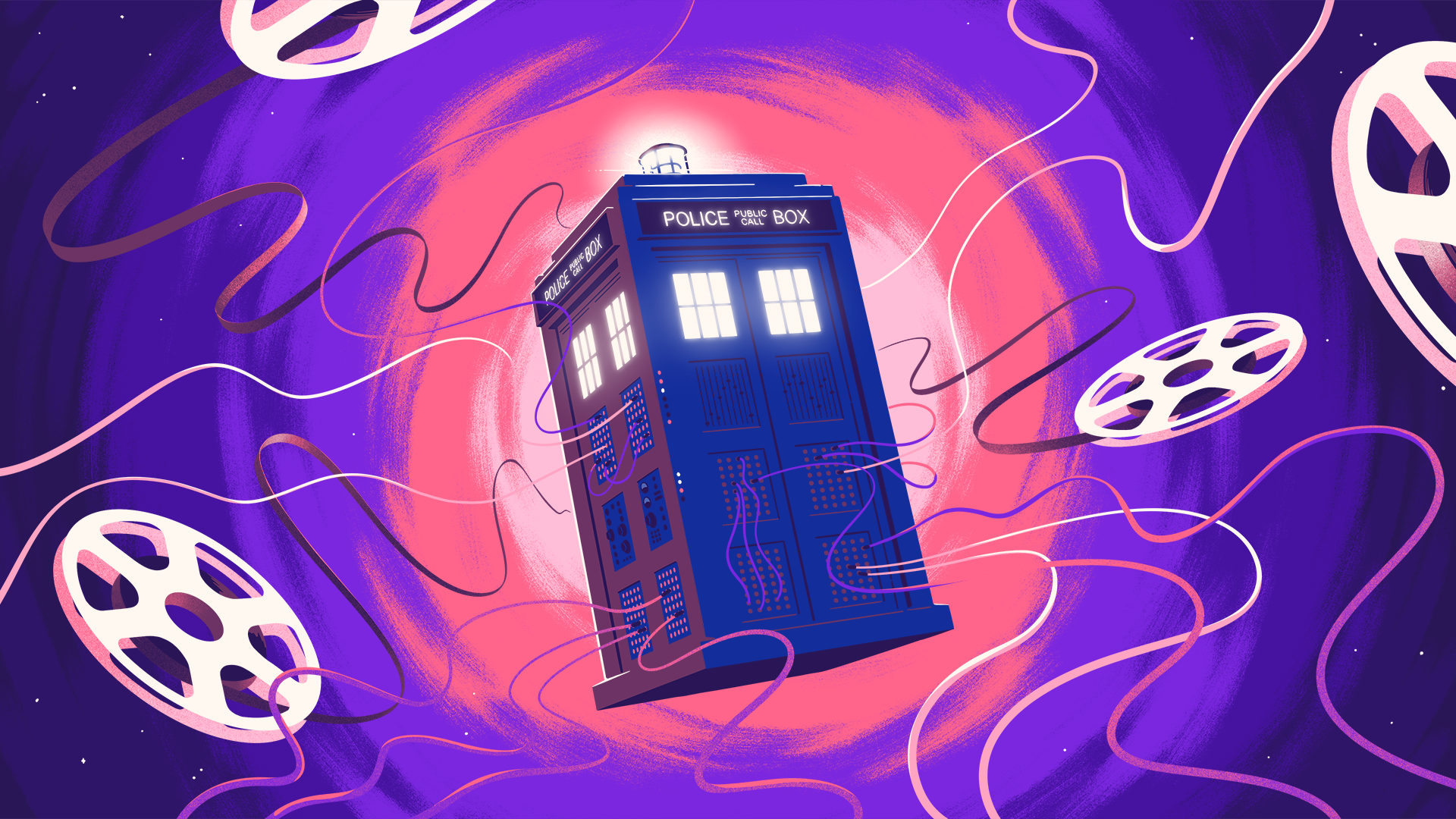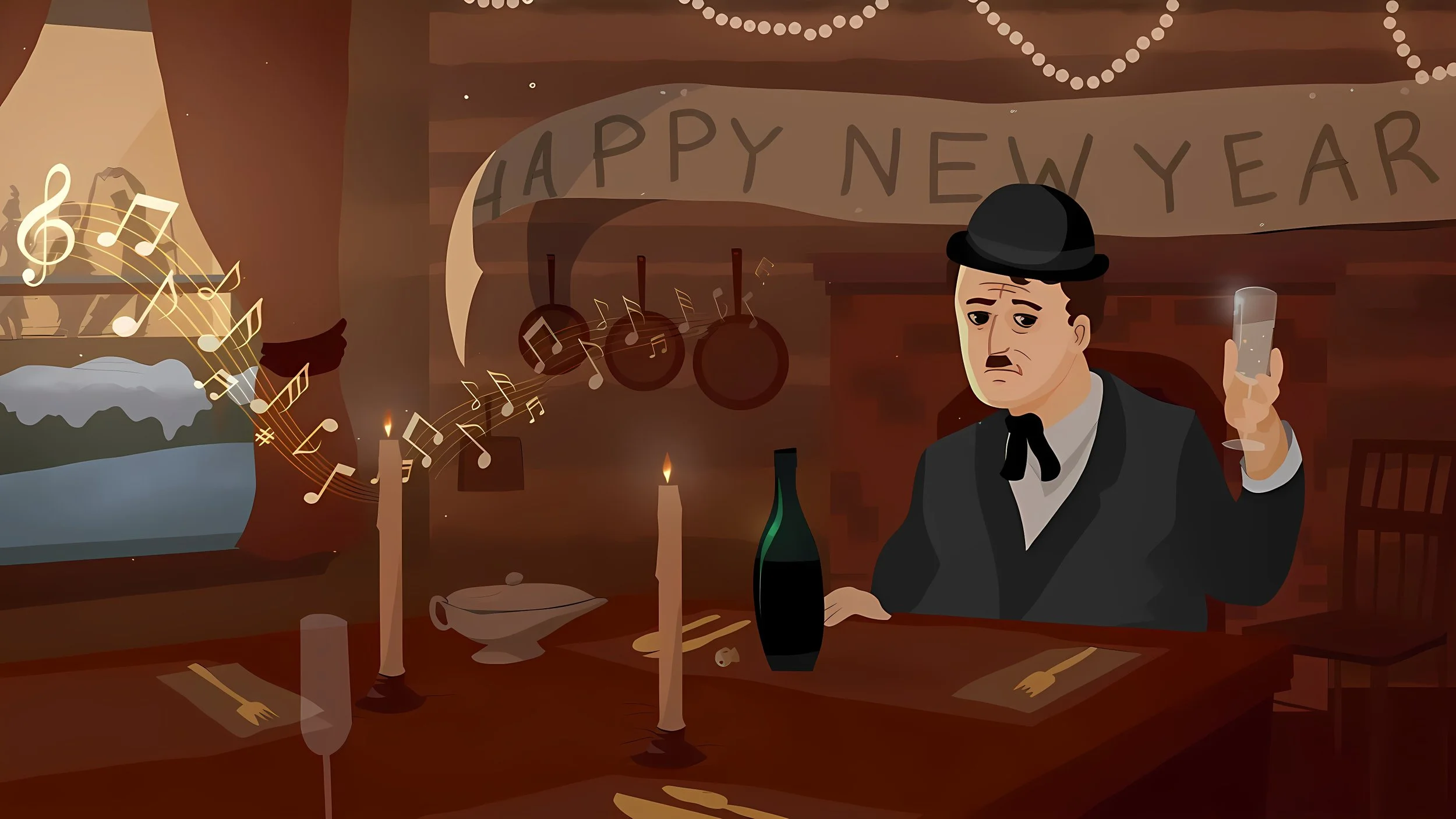What does a time machine sound like? Or a magic carpet? For the BBC Radiophonic Workshop, that was just another day at the office. For 40 years, this oddball collective of engineers and composers pushed the boundaries of sound design, crafting eerie atmospheres, quirky jingles, and the iconic audio of Doctor Who. In this episode, we explore the rise and fall of this pioneering studio with composer and archivist Mark Ayres, and uncover how these sonic wizards shaped the future of sound.
Auld Lang What? The surprising origins of the New Year’s song
Every New Year’s at midnight, we raise our voices to sing a song that few of us understand: “Auld Lang Syne.” So when and why did this become the anthem of the holiday? In this episode, our friends at the Smithsonian’s Sidedoor podcast trace the mysterious rise of “Auld Lang Syne” from rural Scotland, to a New York jazz club, to a classic film and an iconic actor. Featuring folklorist Jim Deutsch.
The Secret Soundtracks of Movies & TV
In the ‘60s and ‘70s, world-class musicians gathered in smoky studios to record tracks that you couldn’t buy in a store… but ended up everywhere. In this episode, Dallas and the TTH crew dive into the golden age of production music: versatile cues crafted for everything from car chases to romantic montages to space odysseys. Along the way, they uncover how these obscure records found their way into sports broadcasts, hip hop singles, and modern sitcoms, and reveal the vintage library track that Quentin Tarantino brought back into style.
Inside Imagineering: How Sound Powers Disney Magic
Sound is a crucial part of what makes Disney parks feel magical… and it all starts inside the closely-guarded rooms of Walt Disney Imagineering. In this episode, Imagineers John Dennis and Greg Lhotka break down how they use music and audio to bring attractions to life, from speaker systems hidden in rock work, to the intricate timing of a Frozen water ride. Then, they reveal the surprising story of how one of Disney’s most iconic songs got a brand new verse, more than half a century after its debut.
Live from New York, I’m Retired! SNL’s Sound Legend Signs Off
Behind Saturday Night Live, there’s a small army of audio professionals making the whole thing sound effortless. In this episode, Dallas goes behind the scenes at Studio 8H to meet Robert Palladino, who’s mixed the sound for SNL for 40 years… and is about to do it one last time. Along the way, he gets an unprecedented look at how this legendary show is mixed, and talks to the new Production Mixer Fred Hedemark about stepping into Bobby’s shoes.
The Nursery Rhyme That Ruined a Rock Band
When a quiz show host asked a simple question about nursery rhymes, it seemed like harmless fun. But that moment triggered a lawsuit that would threaten to bring down one of Australia’s most iconic rock bands. In this story from the Cautionary Tales podcast, we follow the unlikely court case of Men At Work’s “Down Under,” exploring the fine line between inspiration and infringement, and the collateral damage of copyright.
Listener Stories 2025 (Silver): Pinball Pings & Airport Acoustics
Presenting the second collection from our Listener Stories competition, featuring five short pieces written and produced entirely by our audience. From the sonic evolution of pinball to reused classical melodies to the battle against airport noise, this Silver Collection is a diverse and enlightening set of snackable stories.
The Music of Jeopardy! From a Lullaby to $100,000,000
It’s the most recognizable TV theme in America. But Jeopardy’s “Think Music” wasn’t originally written for a game show… It was written for a toddler. In this episode, we trace the unlikely journey of the Jeopardy theme, from Merv Griffin’s living room to over 10,000 episodes across six decades. Along the way, we explore the show’s sonic evolution, including honking buzzers, 80s synths, and orchestral remixes. Featuring Lisa Broffman, Jeopardy’s Consulting Co-Executive Producer.








